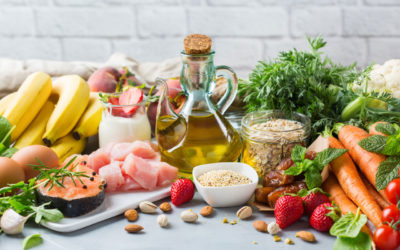By Joy Stephenson-Laws
Perhaps one of the greatest lessons I have learned during my three decades in health care is that good nutrition is the foundation for a healthy life. The body needs a balance of six essential nutrients (carbohydrates, protein, vitamins, minerals, fats and water) to function at its best. And it’s best to aim to get as much of these six nutrients as possible from fresh vegetables, fruits and grains.
In my opinion, the following 10 foods fit the bill because they are nutrient-dense, available throughout most of the year and easy-to-prepare:
- Coconut Water – Not to be confused with coconut milk, coconut water is the clear liquid from inside the coconut and it is great for hydration. The minerals in coconut water such as potassium, calcium, magnesium and phosphorous facilitate bone health, digestion, weight management and reduce blood pressure.
- Organic Brown Rice – One of my favorite carbohydrates. It is usually referred to as a “good carb” because it is rich in fiber as well as minerals such as magnesium, selenium and manganese. It is a low glycemic food which means it helps to keep your blood sugar in check.
- Black Beans – Some people use black beans as a meat substitute by making black bean burgers. You can also serve black beans over brown rice for a nutritious meal. They are low in fat and a great source of calcium, magnesium, folate, vitamin K, protein and other nutrients.
- Kale – This green leafy vegetable has earned its reputation as a “super food.” Kale, which can be prepared in a variety of ways, is full of vitamin C, vitamin A, vitamin K1, vitamin B6, potassium, magnesium, calcium, manganese and copper. As an added bonus, it is rich in chlorophyll which some researchers suggest may be helpful in treating anemia. An average serving only has about 50 calories and even has fiber and protein!
- Garlic – Another powerhouse, garlic contains a number of antioxidant and sulfur compounds that have been shown to be helpful in the prevention of cancer, as well as cardiovascular, neurological and liver diseases. It also has antibacterial effects, boosts the immune system and increases insulin sensitivities.
- Potato – This ubiquitous and humble food has a little bit of everything. It has a variety of vitamins and minerals, including manganese, potassium, vitamin C, vitamin B, iron and copper. It’s also very versatile and filling. Yams and sweet potatoes are more complex than regular potatoes, so they may be a better choice for many people.
- Eggs – Eggs are usually referred to as “nature’s multivitamin pill” because they contain significant amounts of vitamins A, D, E, and a range of B vitamins. They also contain a ton of minerals – 10 of them! They include zinc, potassium, sodium, copper, iodine, magnesium and iron. And, according to the Heart Foundation, eating 6-7 eggs a week will not increase your risk of heart disease when eaten as part of a healthy eating pattern.
- Avocados – They are full of critical minerals and vitamins. Avocados are also known for having a ton of healthy fats including monounsaturated fatty acids (MUFAs) which helps prevent accumulation of abdominal fat and diabetic health complications. They are a perfect addition to your salad, sandwich or side dish.
- Blueberries – In addition to tasting great, blueberries (which are full of antioxidants) may help fight cervical cancer, improve memory, and help control blood pressure and cholesterol.
- Dark Chocolate – Of course, there has to be a “fun food” on the list. Dark chocolate is full of antioxidants and minerals such as copper, iron and manganese. Research indicates that it offers a variety of benefits, including lower stress hormones, improved cardiovascular health, lower blood pressure and improved brain function.
Joy Stephenson-Laws is the founder of Proactive Health Labs (www.phlabs.org), a national 501c3 nonprofit health information company that provides education and tools needed to achieve optimal health.









